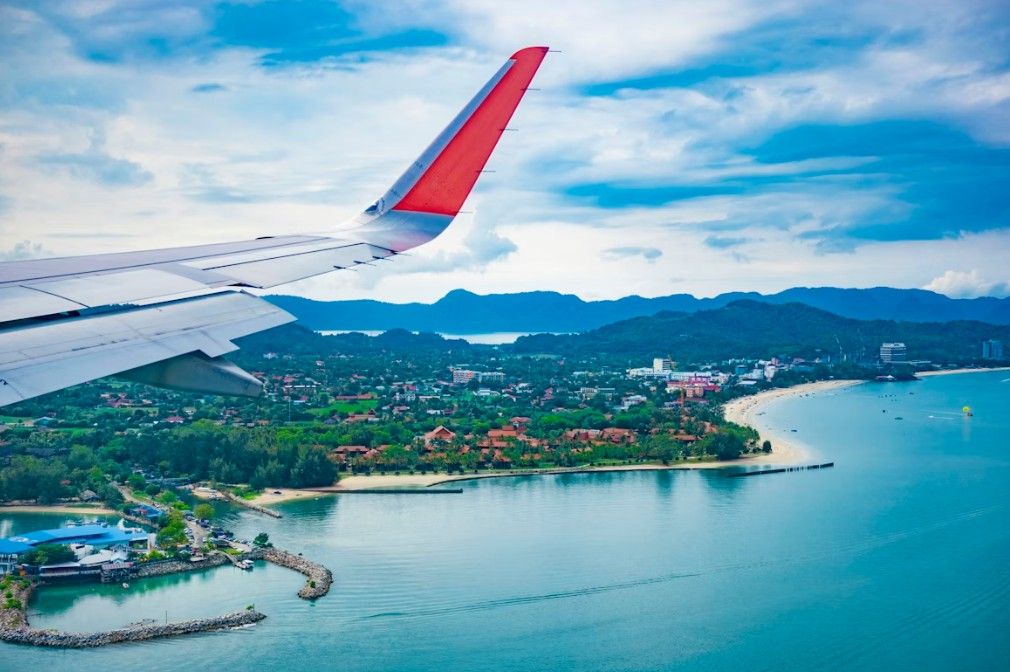Planning a Corporate Retreat in Europe Can Be Easy!
by Stana Ferrari, 06 August 2025
Corporate retreats in Europe are common for many reasons. Companies want to reward top employees for outstanding performance; business partners want to celebrate a new deal which has been closed; and the marketing team wants to release a new product in style. It is very common for companies to plan corporate trips with DMC Travel.
Travel industry professionals know that planning corporate retreats is no easy feat. Coordinating dates, juggling logistics, and building contingency plans takes experience — and the right tools. That’s where Eventflare comes in. As a platform dedicated to curating unique venues and managing every detail of corporate events, it helps take the stress out of retreat planning. The checklist below will walk you through the essentials to make it even simpler.
(Photo Credits: Unsplash)
1. Define Goals and Audience
Clarity is key. Is the retreat intended for relaxation, team building, or launching a new initiative? Should it foster networking or reinforce company values? Defining the core objective helps shape every decision — from location and schedule to the tone of the event itself. For example, a city hotel suggests business and efficiency, while a remote resort signals rest and rejuvenation.
Clear goals also help attendees prepare. And preparation goes beyond packing the right clothes — it affects mindset. When people know what to expect, they arrive feeling more at ease, more engaged, and more open to connecting with others. That comfort is essential to making the retreat both enjoyable and effective.
2. Choose the Right Destination
A strong, consistent brand image is a hallmark of successful companies — but maintaining that consistency across different experiences can be challenging. Corporate retreats offer a unique opportunity to reinforce the brand through thoughtful destination choices. Every city has its own character, and selecting one that aligns with the company’s identity can elevate the entire experience.
Geneva, for instance, reflects understated luxury and discretion. Monte Carlo exudes opulence and flair. Tuscany offers timeless charm and cultural depth. The destination sets the tone for the retreat and plays a strategic role in shaping how the event is perceived.
Platforms like DMC Travel, which connect planners with destination management companies across Europe, are valuable tools for aligning logistics with brand strategy.

3. Build a Solid Infrastructure
Even if the corporate retreat has a large budget, the agent should choose accommodation, transportation, and amenities in a way that truly serves the attendees. For example, booking a fancy resort hours away from the venues guests will attend every day is not relaxing — it becomes a nuisance.
Transportation works the same way. Fancy sedans are impressive, but moving a large group is simply not feasible with them. When working with a good limousine companies’ directory, the service includes luxury vans and electric cars — all offering the highest standard of comfort, quietness, and safety.
Get access to the event industry's inside scoop
4. Create a Balanced Schedule
Corporate professionals can spend the whole day in a work setting, but they will want to unwind at some point. The key to keeping attendees focused and relaxed is to balance the activities toward both ends. Agents planning the retreat must remember that this balance is essential to ensure a smooth operation.
In practice, that means blending workshops, lectures, and other corporate events with wellness time, guided tours, and cultural experiences. Depending on the destination, it can also be effective to leave a day free for attendees to explore on their own. By giving them time to rest and enjoy the trip, they become more invested in the corporate objectives.
5. Provide the Necessary Support
Support plays a key role in ensuring attendees' well-being during a corporate retreat. From clearing customs to setting up presentations, guests may need assistance with a variety of practical matters — and language barriers can add an extra layer of complexity. This is where DMCs can be helpful, providing local staff to ensure everything runs smoothly.
Clear, consistent communication is just as important. Whether through a concierge contact, WhatsApp group, or a dedicated event app, having reliable channels in place helps guests feel informed and supported throughout the trip. When attendees know assistance is available if needed, they’re better able to focus on the purpose of the retreat — whether that’s to relax, to collaborate, or both.

6. Prepare a Risk Management Plan
Agents must be prepared to handle everything from minor inconveniences—like traffic delays or overbooked restaurants—to major disruptions such as event cancellations or extreme weather. While not every issue can be anticipated, building a strong support network allows travel managers to respond swiftly and effectively.
This may include securing insurance, understanding local regulations, and complying with health protocols. Just as importantly, attendees should know exactly who to contact if something goes wrong. A well-prepared risk management plan offers peace of mind — one of the most valuable features of a successful corporate retreat.
7. Collect Feedback and Learn From It
The final step in a successful corporate retreat is to allow attendees to give feedback. They will do it gladly because everyone wants great experiences. If the trip was good, they will rave about it. But any issues they might have had will certainly be reflected in their responses. Either way, this is an opportunity to learn and improve.
If the agent has the proper tools, it is also helpful to monitor performance indicators. For example, if only a few guests effectively used the pre-selected restaurant, it was probably not up to their standards. By analysing details of past trips, it will be possible to identify how to improve future planning.
Get access to the event industry's inside scoop